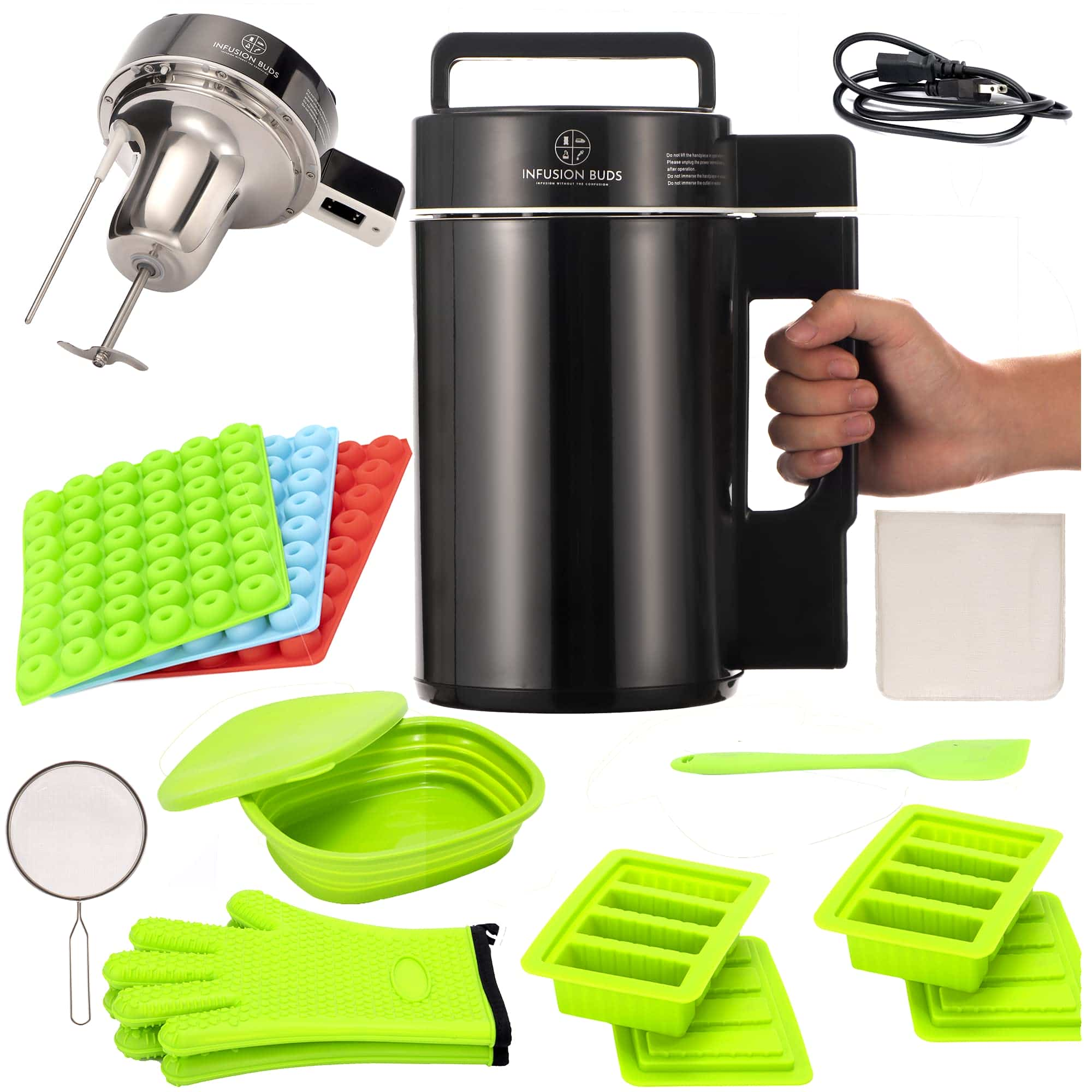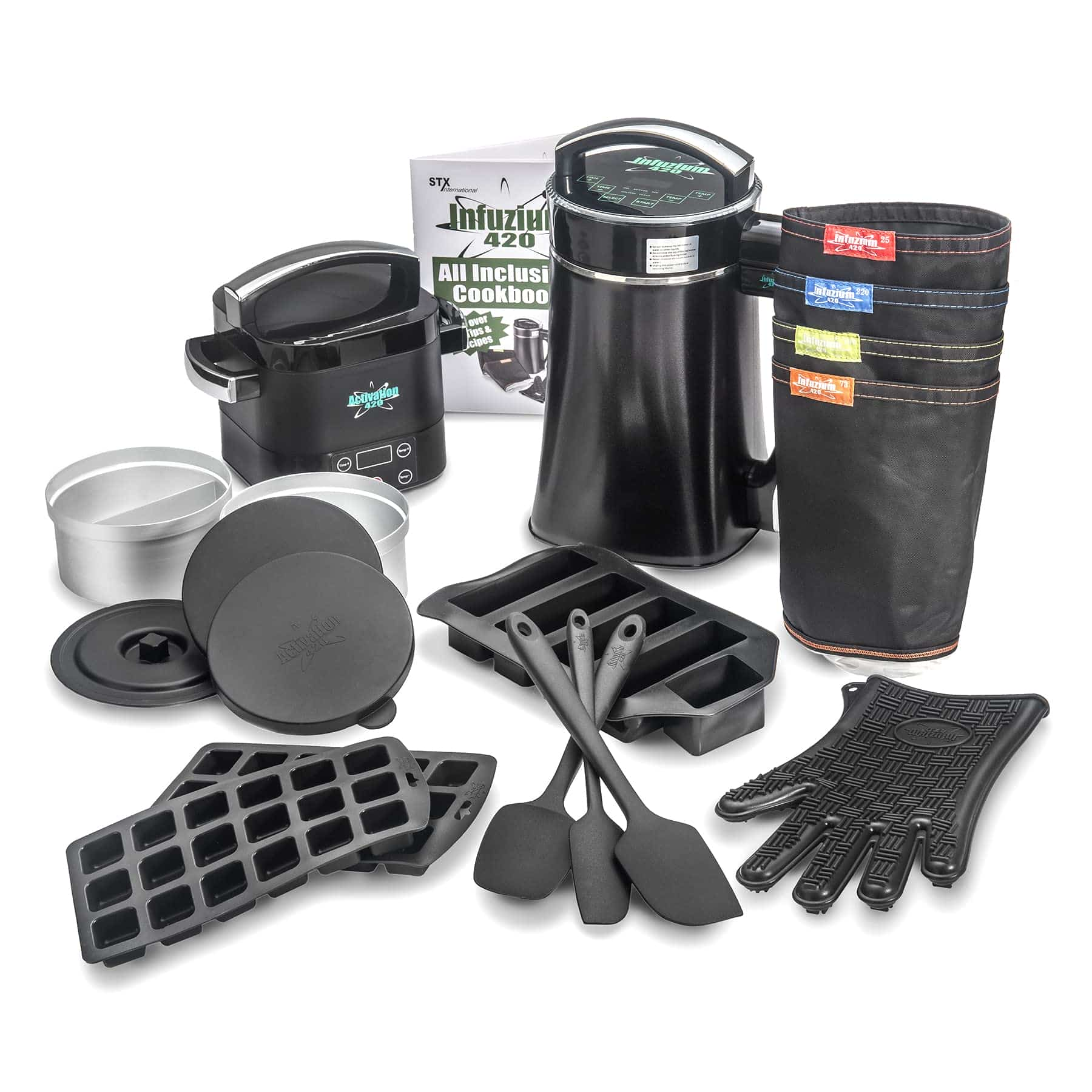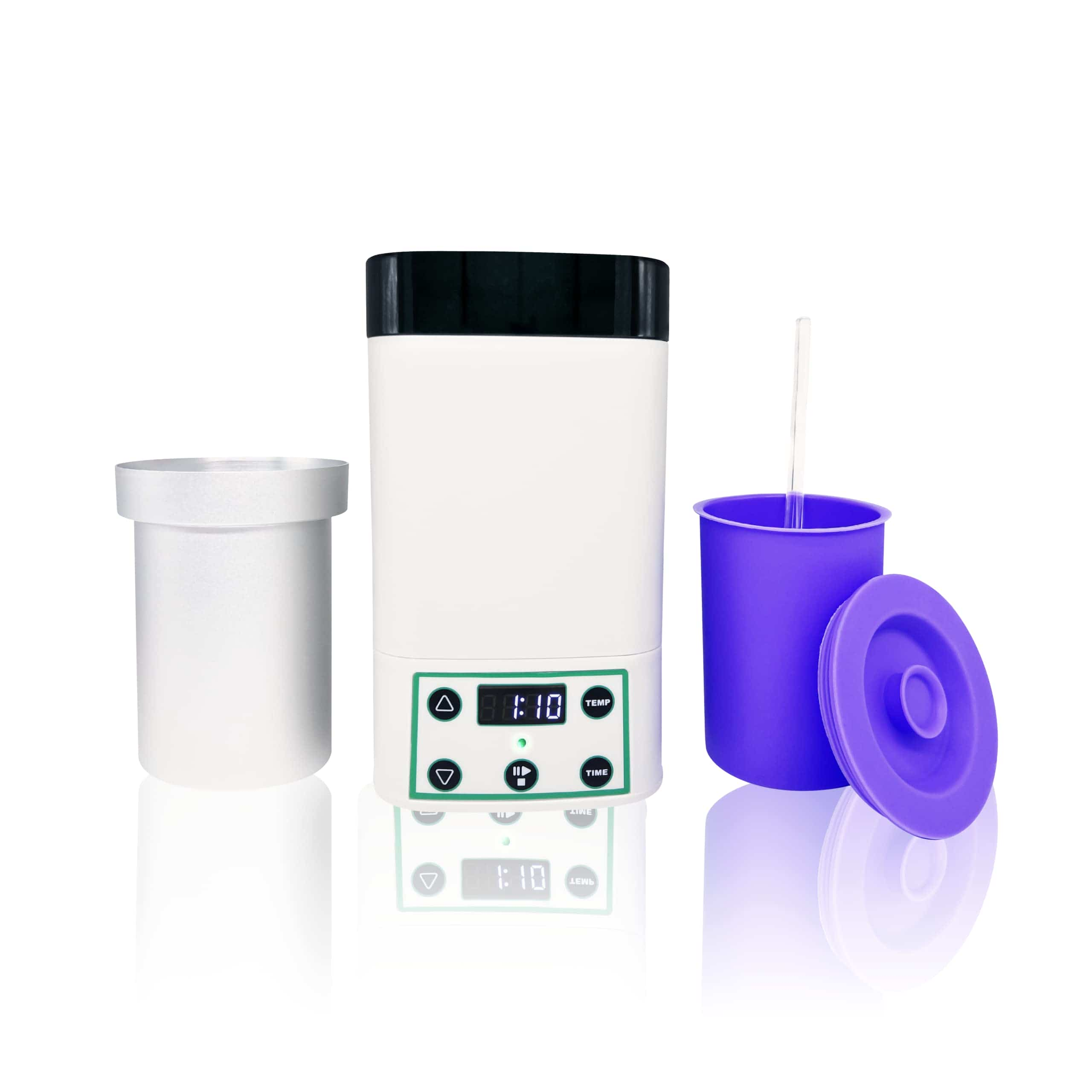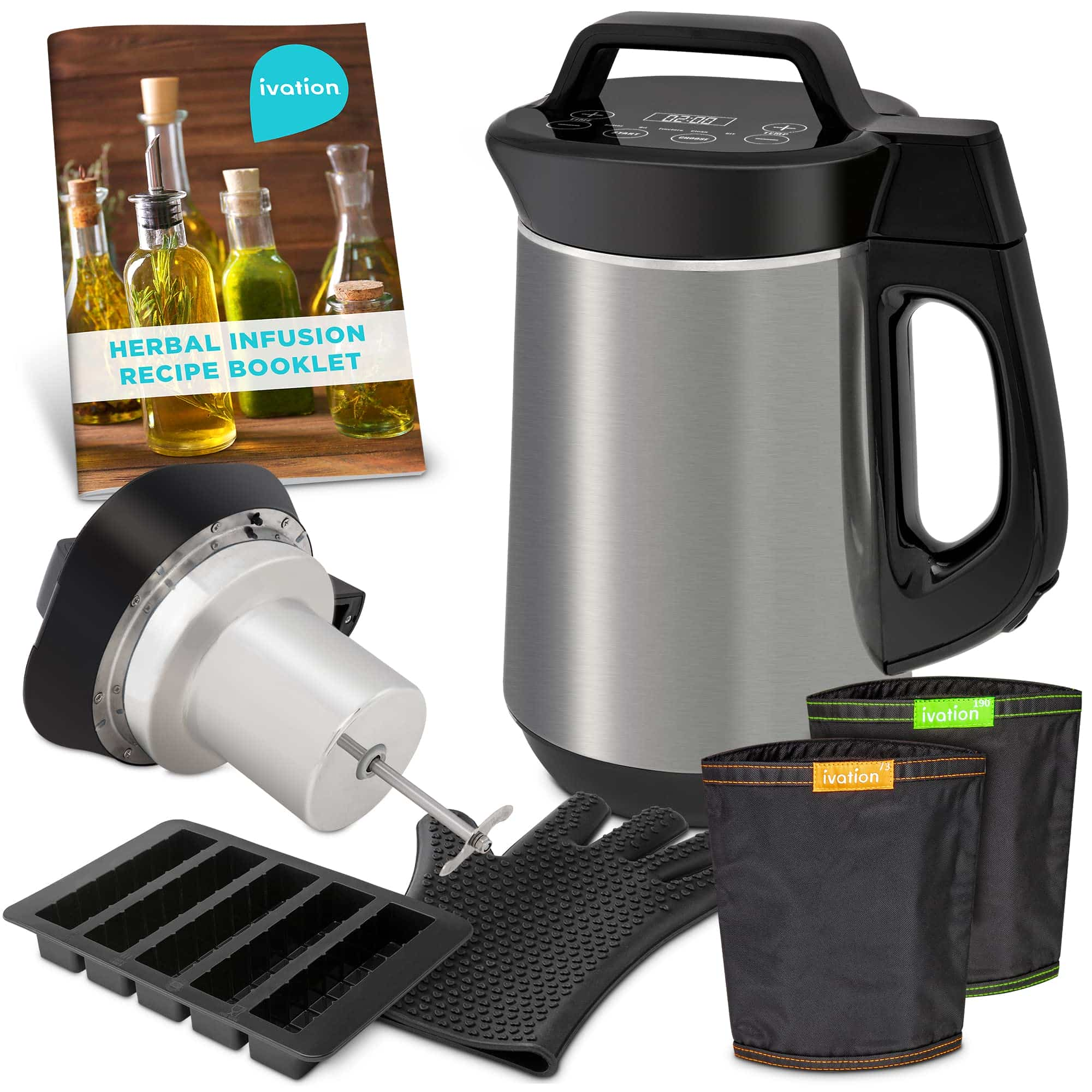Herbal Tea
Is Herbal Tea Ok When Fasting
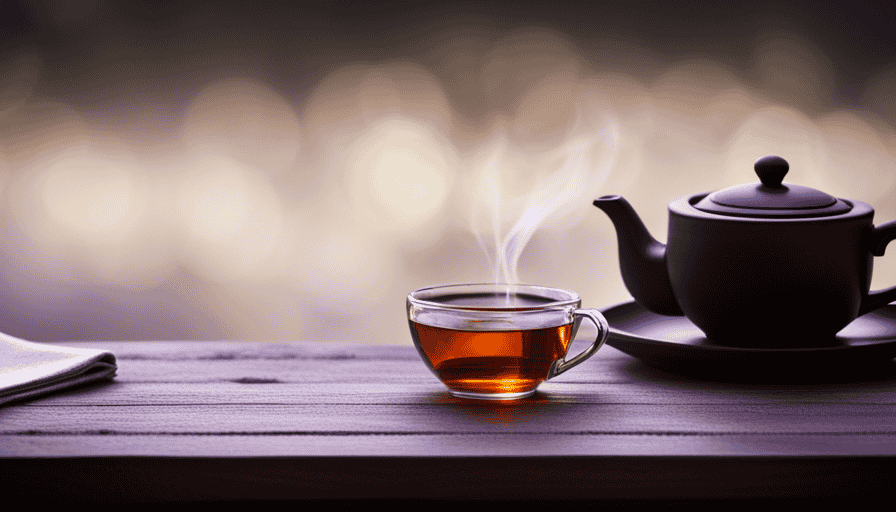
Imagine yourself sitting in a peaceful garden, surrounded by vibrant flowers and the soothing sound of nature. As you take a deep breath, you hold a warm cup of herbal tea in your hands, its aroma wafting up to tickle your senses.
Now, imagine incorporating this delightful experience into your fasting routine. The question arises: is herbal tea okay when fasting? In this article, we will explore the benefits of herbal tea during fasting, the types of herbal tea you can enjoy while fasting, and the best practices for incorporating it into your fasting routine. We will delve into expert opinions and research studies to provide evidence-based information.
Additionally, we will answer frequently asked questions about herbal tea and fasting, and offer tips for brewing the perfect cup of herbal tea. So, let’s embark on this journey of discovering whether herbal tea can be a refreshing and beneficial addition to your fasting routine.
Key Takeaways
- Herbal tea can be incorporated into fasting routines for its benefits, such as hydration, digestion support, and stress reduction.
- Different herbal teas have different benefits, such as chamomile for relaxation and peppermint for appetite control.
- It is important to listen to your body’s needs and adjust herbal tea consumption accordingly during fasting.
- Pay attention to potential considerations and precautions, such as allergies, caffeine content, and potential laxative effects of certain herbal teas.
Understanding Intermittent Fasting
Intermittent fasting provides numerous health benefits, making it essential to comprehend its principles. This popular eating pattern involves alternating periods of fasting and eating. There are different fasting methods to choose from, including the 16/8 method, where you fast for 16 hours and eat during an 8-hour window, and the 5:2 method, where you eat normally for 5 days and restrict your calorie intake for 2 days.
Intermittent fasting has been shown to promote weight loss, improve insulin sensitivity, enhance brain function, and reduce inflammation in the body. It can also help lower the risk of chronic diseases such as diabetes, heart disease, and cancer.
Now, let’s discuss the benefits of herbal tea during fasting.
Benefits of Herbal Tea During Fasting
During fasting, herbal tea can provide several benefits. First, it serves as a hydration and digestive aid, helping to keep the body hydrated and promoting better digestion.
Second, herbal tea contains antioxidants and anti-inflammatory properties, which can help reduce inflammation and oxidative stress in the body.
Lastly, herbal tea can have calming and relaxing effects, which can be particularly beneficial during fasting when the body may experience increased stress levels.
Hydration and Digestive Aid
Surely you wouldn’t want to miss out on the delightful irony of sipping herbal tea while fasting, as it not only hydrates you but also soothes your digestive system. When it comes to hydration techniques during fasting, herbal tea is an excellent choice. It provides a refreshing way to quench your thirst without breaking your fast.
Additionally, herbal teas are often infused with ingredients like mint, chamomile, or ginger, which have traditionally been used for their digestive benefits. These ingredients can help ease any discomfort you may feel during fasting and promote healthy digestion.
As we transition into the subsequent section about the antioxidant and anti-inflammatory properties of herbal tea, it’s important to note that these properties can further enhance the overall benefits of fasting.
Antioxidant and Anti-inflammatory Properties
Not only does sipping on this soothing elixir provide a refreshing burst of flavor, but it also works wonders for boosting your body’s defenses and reducing inflammation.
Herbal tea is packed with antioxidants, which help protect your cells from damage caused by harmful molecules called free radicals. These antioxidants can help reduce the risk of chronic diseases, such as heart disease and certain types of cancer.
Additionally, herbal tea has anti-inflammatory effects, meaning it can help reduce inflammation in the body. This can be particularly beneficial for those with conditions like arthritis or inflammatory bowel disease.
So, when you’re fasting, herbal tea can be a great choice to support your overall health and well-being. It not only keeps you hydrated but also provides antioxidant benefits and anti-inflammatory effects.
Next, let’s explore the calming and relaxing effects of herbal tea.
Calming and Relaxing Effects
Indulging in a cup of this soothing elixir can transport your mind to a state of tranquility, as it gently eases away stress and promotes a sense of calm. Herbal teas have long been revered for their calming and relaxing effects, making them a perfect choice when fasting. Various calming tea varieties, such as chamomile, lavender, and lemon balm, contain compounds that have been shown to reduce anxiety and improve sleep quality. These herbal teas work by interacting with neurotransmitters in the brain, promoting relaxation and reducing stress levels. Additionally, the ritual of brewing and sipping herbal tea can provide a moment of mindfulness and self-care, further enhancing its calming benefits. So, when it comes to finding solace during fasting, herbal tea can be a wonderful companion. Transitioning into the subsequent section about ‘types of herbal tea to enjoy while fasting,’ let’s explore the diverse flavors and benefits they offer.
Types of Herbal Tea to Enjoy While Fasting
You can definitely enjoy certain types of herbal tea while fasting, such as chamomile or peppermint tea, which can offer a soothing and refreshing experience. Did you know that a study found that peppermint tea may help reduce hunger cravings and aid in weight loss?
When it comes to fasting, it’s important to choose the right types of herbal tea to avoid unwanted effects on hunger levels. Some herbal teas, such as green tea or black tea, contain caffeine, which can increase hunger and disrupt the fasting process. It’s best to steer clear of these types of tea while fasting.
Instead, opt for herbal teas that are caffeine-free and have calming properties. Chamomile tea, for example, is known for its relaxing effects and can help reduce stress and anxiety. Peppermint tea, on the other hand, not only soothes the stomach but also has been shown to reduce hunger pangs.
Incorporating herbal tea into your fasting routine can be a great way to enhance the experience. However, it’s important to remember that herbal tea should not replace water during fasting. It’s best to drink herbal tea in moderation and stay hydrated with plain water throughout the day.
Best Practices for Incorporating Herbal Tea into Your Fasting Routine
When incorporating herbal tea into my fasting routine, I always make sure to choose organic and natural herbal teas. This ensures that I’m consuming a product that’s free from pesticides and other harmful chemicals.
Additionally, I avoid adding sweeteners or any other additives to my herbal tea, as this can disrupt the fasting process and add unnecessary calories.
Lastly, I listen to my body’s needs and adjust my herbal tea consumption accordingly, making sure to drink enough to stay hydrated but not overdoing it.
Choosing Organic and Natural Herbal Teas
Opting for organic and natural herbal teas creates a visually soothing and health-conscious experience while fasting. When choosing herbal teas for your fasting routine, consider these organic options to enhance the benefits of your fast:
- Chamomile: Known for its calming properties, chamomile tea can help reduce stress and promote relaxation during fasting.
- Peppermint: Peppermint tea aids digestion and can alleviate stomach discomfort that may occur while fasting.
- Ginger: This herbal tea has anti-inflammatory properties and can help soothe nausea and improve digestion.
- Rooibos: Rich in antioxidants, rooibos tea supports immune function and can be enjoyed hot or cold.
By incorporating these organic herbal teas into your fasting routine, you can maximize the health benefits of your fast.
In the next section, we’ll explore the importance of avoiding sweeteners and additives when choosing herbal teas for fasting.
Avoiding Sweeteners and Additives
To enhance the purity and health benefits of your fasting routine, have you considered avoiding sweeteners and additives in your choice of herbal teas? Opting for unsweetened herbal tea can help you reap the maximum health benefits that herbal teas offer.
Sweetened herbal teas may contain added sugars or artificial sweeteners, which can undermine your fasting goals and potentially lead to unwanted spikes in blood sugar levels. By choosing unsweetened herbal teas, you can enjoy the natural flavors and medicinal properties of the herbs without any unnecessary additives.
Herbal teas are known for their various health benefits, such as promoting digestion, reducing inflammation, and boosting immunity. So, why not let the pure essence of the herbs shine through? Listening to your body’s needs is essential to ensure a successful fasting experience.
Listening to Your Body’s Needs
Listening to your body’s needs is crucial in order to ensure a successful and beneficial fasting experience. When it comes to herbal tea, it’s important to pay attention to your body’s signals and act accordingly. Here are four key considerations for listening to your body and practicing intuitive eating during fasting:
-
Body awareness: Tune in to how your body feels before, during, and after consuming herbal tea. Observe any changes in hunger, energy levels, or overall well-being.
-
Mindful drinking: Sip herbal tea slowly and mindfully, savoring each sip. This can help you stay connected to your body and prevent mindless consumption.
-
Hydration needs: Herbal teas can contribute to your daily fluid intake, which is important for staying hydrated during fasting. Make sure you’re drinking enough water alongside herbal tea.
-
Individual preferences: Different people may have different responses to herbal teas during fasting. Experiment with various types and flavors to find what works best for you.
By listening to your body’s needs and practicing intuitive eating, you can personalize your fasting experience.
Now, let’s explore some potential considerations and precautions to keep in mind.
Potential Considerations and Precautions
However, it’s important to note that herbal tea may still have some potential considerations and precautions when fasting. While herbal teas are generally considered safe and can be enjoyed during fasting, there are a few potential health risks to be aware of. Some herbal teas contain ingredients that may have a laxative effect, which could lead to digestive discomfort or diarrhea. It’s also important to be cautious of any potential allergies or sensitivities to specific herbs. Additionally, some herbal teas may contain caffeine, which could interfere with sleep patterns or cause jitters or increased heart rate.
To help you navigate through the potential considerations and precautions of herbal tea when fasting, here is a table that highlights some common herbal teas, their potential benefits, and any precautions to keep in mind:
| Herbal Tea | Potential Benefits | Precautions |
|---|---|---|
| Chamomile Tea | Calming and aids in digestion | May cause drowsiness for some individuals |
| Peppermint Tea | Soothes stomach discomfort and aids digestion | May worsen symptoms of gastroesophageal reflux disease (GERD) |
| Dandelion Root Tea | Supports liver health and digestion | May have a diuretic effect, leading to increased urination |
| Ginger Tea | Relieves nausea and aids digestion | May cause heartburn or worsen acid reflux |
It’s important to listen to your body and pay attention to how herbal teas make you feel during fasting. Personal experiences and testimonials can provide valuable insights and guide you in finding the best approach for yourself.
Personal Experiences and Testimonials
Explore personal experiences and testimonials from others who’ve incorporated herbal teas into their fasting routines to gain valuable insights and visualize the potential benefits they’ve experienced.
Many individuals have reported various health benefits from drinking herbal tea while fasting. Some’ve found that herbal teas can help curb cravings and provide a sense of satiety, making it easier to stick to their fasting plan. Others’ve noticed improvements in digestion and reduced bloating.
There are different types of herbal teas that people’ve found helpful during fasting. For example, green tea’s known for its metabolism-boosting properties, while chamomile tea can promote relaxation and better sleep. Peppermint tea’s often used to soothe digestive issues, and ginger tea may aid in reducing inflammation.
However, it’s important to note that personal experiences can vary, and what works for one person may not work for another. Therefore, it’s essential to listen to your body and consult with a healthcare professional if you’ve any concerns.
Transitioning into the subsequent section about ‘expert opinions and research studies,’ it’s important to consider more evidence-based information to further understand the potential effects of herbal teas during fasting.
Expert Opinions and Research Studies
To gain a deeper understanding of the potential benefits of incorporating herbal teas into your fasting routine, consider the expert opinions and research studies available.
Did you know that a study published in the Journal of Nutrition found that regular consumption of certain herbal blends during fasting can help improve insulin sensitivity and promote better blood sugar control? This study suggests that incorporating herbal teas into your fasting routine may have positive effects on your overall health.
Additionally, expert opinions indicate that herbal teas can provide hydration and offer a variety of antioxidants and phytochemicals, which can support your body’s natural detoxification processes. Research studies have also shown that certain herbal teas, such as green tea and chamomile tea, can have calming effects on the body, helping to reduce stress and promote relaxation during fasting periods.
When considering which herbal teas to incorporate into your fasting routine, it is important to choose blends that are free of caffeine and added sugars. This will ensure that you are getting the most benefits from your fast. Additionally, brewing the perfect cup of herbal tea involves steeping the tea for the appropriate amount of time and using water that is at the correct temperature. These factors can impact the taste and effectiveness of the tea. So, to enhance your fasting experience, take the time to learn how to brew the perfect cup of herbal tea.
Tips for Brewing the Perfect Cup of Herbal Tea
When it comes to brewing the perfect cup of herbal tea, there are a few key points to keep in mind. First, water temperature and steeping time are crucial factors that can greatly affect the taste and quality of your tea. Using the right temperature and allowing the tea to steep for the appropriate amount of time will help bring out the flavors and aromas.
Secondly, consider using tea infusers or other brewing methods to enhance the brewing process. These tools can help to strain the tea leaves and ensure a smoother and more enjoyable cup of tea.
Lastly, adding a splash of lemon or a drizzle of honey can enhance the flavors of your herbal tea and provide a refreshing twist.
Water Temperature and Steeping Time
Steeping herbal tea at an optimal water temperature and time is crucial for obtaining the desired flavor and benefits while fasting. Research suggests that different herbal teas require specific water temperatures to unlock their full potential.
For example, delicate herbal teas like chamomile and mint should be steeped at a lower temperature around 180°F (82°C) to preserve their delicate flavors. On the other hand, robust herbal teas like ginger and hibiscus can withstand higher temperatures around 212°F (100°C) for a more robust flavor profile.
Steeping herbal tea for the recommended time allows the water to extract the beneficial compounds, such as antioxidants and polyphenols, from the herbs. This enhances the health benefits that herbal teas offer during fasting.
Now, let’s delve into the next section about tea infusers and brewing methods to further enhance our herbal tea experience.
Tea Infusers and Brewing Methods
Using a tea infuser and experimenting with different brewing methods can take your herbal tea experience to a whole new level, making it an exhilarating journey of flavors and aromas.
Tea infusers come in various types, such as ball infusers, basket infusers, or even reusable cloth bags. These infusers allow loose leaf tea to expand and release its full flavor, resulting in a more robust and satisfying drink.
Compared to tea bags, loose leaf tea offers numerous benefits, including better quality leaves, more antioxidants, and a wider range of flavors to choose from. By using a tea infuser and opting for loose leaf tea, you can truly enhance your fasting experience with a delicious and refreshing cup of herbal tea.
Transitioning into the next section, adding a touch of lemon or honey can further enhance the flavors of your tea without breaking your fast.
Enhancing Flavors with Lemon or Honey
To truly elevate your tea experience and tantalize your taste buds, consider adding a touch of zesty lemon or a hint of golden honey. This creates a delightful symphony of flavors that will leave you craving for more.
Not only do these additions enhance the taste, but they also offer some health benefits. Lemon is rich in vitamin C and antioxidants, which can boost your immune system and aid in digestion. Honey, on the other hand, has antibacterial properties and can soothe sore throats.
However, it’s important to note that adding lemon or honey to your herbal tea may break your fast, as they contain calories. If you’re fasting specifically for weight loss or other health reasons, it’s best to stick to plain herbal tea.
Now, let’s move on to some frequently asked questions about herbal tea and fasting.
Frequently Asked Questions about Herbal Tea and Fasting
Don’t even think about sipping on that soothing herbal tea while fasting, it’s not like it would help you relax or anything. But wait, before you dismiss the idea completely, let’s address some frequently asked questions about herbal tea and fasting.
-
Is herbal tea considered a safe option during fasting? Personal anecdotes suggest that some people find herbal tea to be a helpful addition to their fasting routine. However, scientific evidence on the effects of herbal tea during fasting is limited. It’s important to listen to your body and make sure that herbal tea doesn’t interfere with your fasting goals.
-
Can herbal tea break a fast? While herbal teas are generally low in calories and don’t contain macronutrients, they may still have trace amounts of calories. This can potentially disrupt the fasting state, especially if consumed in large quantities. It’s best to opt for herbal teas without any additives or sweeteners to minimize calorie intake.
-
Does herbal tea have any potential benefits during fasting? Some herbal teas, such as green tea and chamomile tea, are known for their antioxidant properties and may offer potential health benefits. However, more research is needed to determine the specific effects of herbal tea on fasting.
Enjoying herbal tea as a refreshing and beneficial addition to your fasting routine can be a personal choice. However, it’s important to be mindful of the potential impact of herbal tea on your fasting goals and listen to your body’s signals.
Conclusion: Enjoying Herbal Tea as a Refreshing and Beneficial Addition to Your Fasting Routine
Remember, incorporating a refreshing and beneficial addition like herbal tea into your fasting routine can be a personal choice that enhances your overall experience.
When it comes to choosing herbal blends, there are countless options available, allowing you to experiment with different flavors and find the ones that you enjoy the most. Whether you prefer a calming chamomile, a zesty ginger, or a soothing peppermint, there’s a herbal tea out there to suit every taste preference.
Herbal tea can provide a range of benefits during fasting. Firstly, it can help to hydrate your body, which is especially important when you’re abstaining from food and drink. Additionally, certain herbal teas may have properties that can support digestion and reduce bloating. For example, ginger tea has been shown to have anti-inflammatory effects and can aid in relieving digestive discomfort.
It’s important to note that while herbal tea is generally considered safe during fasting, it’s always a good idea to consult with a healthcare professional or nutritionist before making any significant changes to your diet or fasting routine. They can provide personalized advice based on your specific health needs.
Overall, incorporating herbal tea into your fasting routine can be a delightful way to enhance your experience. So go ahead, try out different flavors, and find the herbal blends that bring you joy and satisfaction during your fasting journey.
Frequently Asked Questions
Can I add sweeteners or milk to my herbal tea while fasting?
Yes, you can add sweeteners or milk to your herbal tea while fasting, but it’s important to consider the health benefits. Let me explain using an allegory.
Imagine you have a beautiful garden full of vibrant flowers. Adding sweeteners or milk to your herbal tea is like adding artificial coloring or synthetic fertilizers to your garden. It may enhance the taste temporarily, but it can diminish the natural health benefits of the tea.
So, it’s best to enjoy your herbal tea without any additives during fasting for maximum health benefits.
Are there any herbal teas that can hinder the benefits of fasting?
Some herbal teas can hinder the benefits of fasting when it comes to weight loss. While herbal teas are generally considered to have a positive effect on digestion, certain types can actually stimulate appetite and increase calorie intake.
Additionally, some herbal teas may contain ingredients that can interfere with the body’s natural detoxification process during a fast. It’s important to choose herbal teas carefully and consult with a healthcare professional or nutritionist for personalized advice.
Can I consume herbal tea during all fasting methods, such as alternate-day fasting or time-restricted eating?
During fasting, herbal tea can be consumed in all fasting methods, like alternate-day fasting or time-restricted eating. Herbal tea can contribute to hydration during fasting, helping to maintain fluid balance in the body.
Additionally, herbal tea can play a role in appetite suppression during fasting, as certain herbal teas have been shown to reduce hunger and promote feelings of fullness. However, it’s important to choose herbal teas that don’t contain added sugars or artificial sweeteners to maximize the benefits of fasting.
How many cups of herbal tea can I drink per day while fasting?
While fasting, it’s important to remember that herbal tea contains zero calories, so it won’t break your fast. Now, let’s dive into the benefits of herbal tea. It’s packed with antioxidants, which can help reduce inflammation and boost your immune system.
Plus, there are various herbal tea varieties to choose from, each offering its own unique health benefits. So go ahead and enjoy a few cups of herbal tea while fasting!
Are there any potential side effects of consuming herbal tea while fasting?
There are potential risks associated with consuming herbal tea while fasting. It’s important to note that long-term effects of this combination aren’t well-studied. Some herbal teas may contain ingredients that could interfere with fasting, such as caffeine or certain herbs that stimulate digestion.
Additionally, excessive consumption of herbal tea can lead to dehydration. It’s always best to consult with a healthcare professional before incorporating herbal tea into your fasting routine to ensure it’s safe for you.
Conclusion
In conclusion, incorporating herbal tea into your fasting routine is an absolute game-changer! The benefits are simply mind-blowing.
From aiding digestion to boosting metabolism, herbal tea is a power-packed elixir that will take your fasting experience to new heights.
With a wide variety of delicious options available, you can indulge in a soothing cup of herbal tea while reaping its countless health benefits.
So go ahead, brew yourself a perfect cup, and enjoy the refreshing and revitalizing addition that herbal tea brings to your fasting journey. Trust me, you won’t regret it!
Arf, an author and an innovative enthusiast of coffee, coffee alternatives, and tea, plays a crucial role as a contributor to the esteemed Cappuccino Oracle platform. Renowned for his curiosity and passion for these captivating beverages, Arf has carved out a unique space for himself in the world of exploration and writing. He realized that coffee, coffee alternatives, and tea are not mere drinks to keep one awake, but universes of flavors and stories waiting to be explored.
Arf’s articles for Cappuccino Oracle blend meticulous research with personal experiences, providing readers with an in-depth understanding of various types of coffee, coffee alternatives, and tea, along with their unique characteristics, cultures, and histories. His honest reviews and engaging narratives guide readers on their own journeys, helping them discover their preferences and find their perfect brew.
Herbal Tea
Soothing Secrets of Herbal Tea
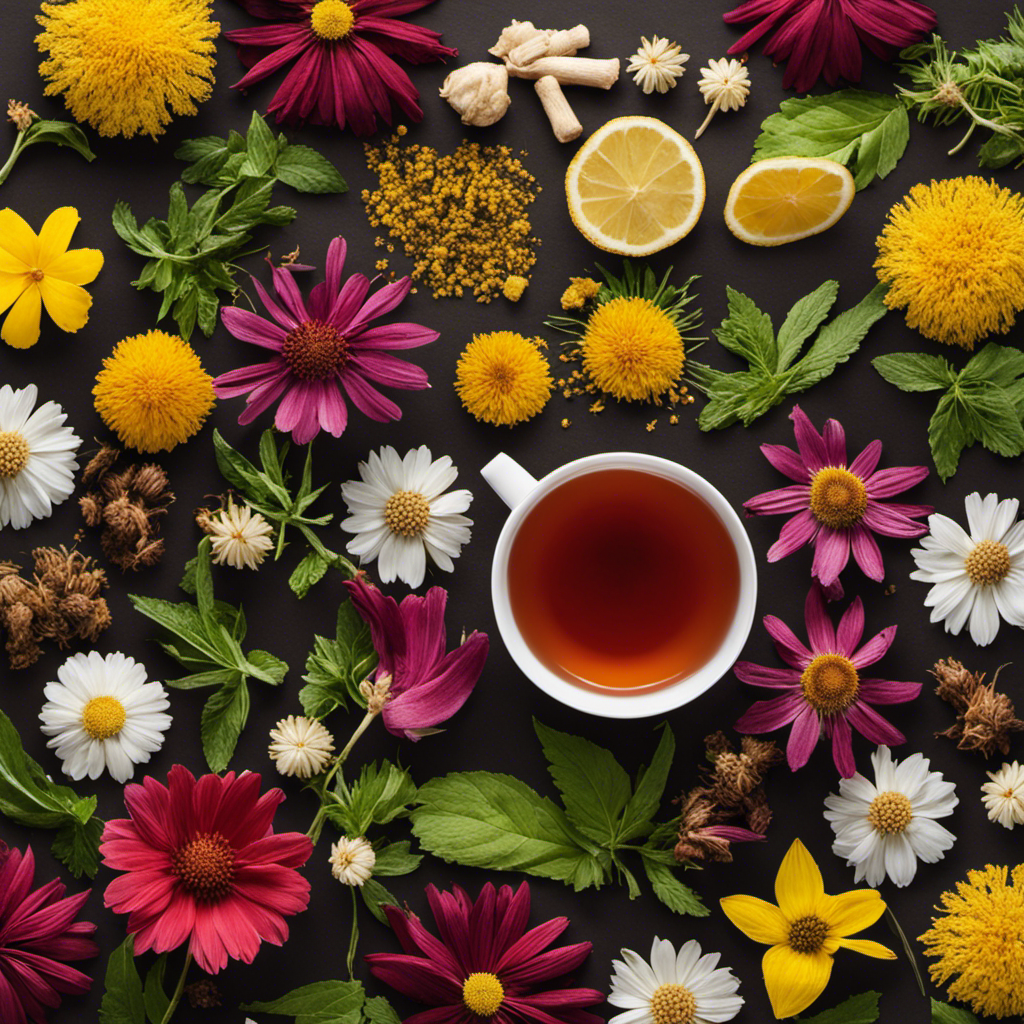
As a tea enthusiast, I have always been intrigued by the calming benefits of herbal tea. From chamomile to peppermint, hibiscus to ginger, and echinacea to dandelion, these teas provide distinct properties that address specific needs.
Whether you’re seeking relaxation, healing, or a boost in immunity, herbal teas have it all. In this article, we’ll explore the benefits of chamomile tea, the digestive powerhouse of peppermint tea, and so much more.
So grab a cup, sit back, and let’s uncover the comforting world of herbal tea together.
Key Takeaways
- Chamomile tea promotes relaxation and reduces anxiety, making it a great option for those seeking a sense of calmness.
- Peppermint tea aids in digestion and provides relief from stomach issues such as spasms and cramps.
- Hibiscus tea improves heart health and boosts the immune system with its high vitamin C content.
- Ginger tea soothes nausea and reduces inflammation in the body, offering long-term benefits for overall well-being.
The Soothing Benefits of Chamomile Tea
I love how chamomile tea soothes my mind and helps me relax after a long day. Chamomile tea is well-known for its calming effects on the body and mind. It has been used for centuries to promote relaxation and reduce anxiety.
Research has shown that chamomile tea contains compounds that bind to certain receptors in the brain, promoting a sense of calmness and tranquility. In addition to its soothing properties, chamomile tea also offers other health benefits. It can help with sleep disorders, digestive issues, and even skin conditions.
This herbal tea is packed with antioxidants and anti-inflammatory compounds that support overall well-being. Whether you’re looking to unwind after a stressful day or improve your sleep quality, a cup of chamomile tea can be a nurturing and soothing addition to your routine.
Peppermint Tea: A Digestive Powerhouse
Peppermint tea, with its refreshing flavor and soothing properties, is known as a digestive powerhouse that can help relieve bloating and improve overall digestion. Here are three key reasons why peppermint tea is a great choice for those seeking digestive relief:
-
Anti-inflammatory properties: Peppermint tea contains menthol, which helps relax the muscles of the gastrointestinal tract, reducing inflammation and easing digestion.
-
Calming effect: The natural compounds in peppermint tea have a relaxing effect on the stomach, reducing spasms and cramps that can cause discomfort.
-
Bloating relief: Peppermint tea has been shown to help alleviate bloating by reducing gas and promoting the passage of food through the digestive system.
By harnessing the healing properties of peppermint tea, individuals can find relief from digestive issues and enjoy improved overall well-being.
Now, let’s explore the next remarkable herbal tea – hibiscus tea – and its incredible healing benefits.
Harnessing the Healing Properties of Hibiscus Tea
By exploring the healing properties of hibiscus tea, individuals can uncover its potential for soothing and healing various ailments.
Hibiscus tea, derived from the vibrant and beautiful hibiscus flower, has been used for centuries in traditional medicine for its numerous health benefits. Packed with antioxidants, hibiscus tea has been shown to lower blood pressure, reduce inflammation, and improve heart health.
Additionally, its high vitamin C content boosts the immune system and aids in the prevention of illnesses. Incorporating hibiscus tea into your daily routine can be as simple as brewing a cup in the morning or sipping on it throughout the day.
Its naturally sweet and tart flavor makes it a refreshing beverage choice, and its potential healing power makes it a valuable addition to any wellness regimen.
Ginger Tea: Nature’s Remedy for Nausea and Inflammation
Ginger tea is a soothing and effective remedy for nausea and inflammation, often providing relief when consumed regularly.
As a natural remedy for motion sickness, ginger tea has been used for centuries to alleviate symptoms such as dizziness and nausea. It works by calming the stomach and reducing the feeling of queasiness.
Additionally, ginger tea is known for its ability to reduce inflammation in the body. This is due to the presence of gingerols, which have been shown to have anti-inflammatory properties. By reducing inflammation, ginger tea can help relieve symptoms associated with conditions such as arthritis and digestive disorders.
Regular consumption of ginger tea can provide long-term benefits for those seeking relief from nausea and inflammation.
Echinacea and Dandelion Teas: Boosting Immunity and Detoxification
I love drinking echinacea and dandelion teas because they boost my immunity and help detoxify my body. Echinacea tea is known for its immune-enhancing properties and can help prevent and fight off infections. Dandelion tea, on the other hand, acts as a natural diuretic, promoting detoxification by flushing out toxins from the body.
Incorporating these teas into my daily routine has had a positive impact on my overall well-being. To illustrate the benefits of echinacea and dandelion teas, I have prepared a table below:
| Tea | Boosting Immunity | Detoxification |
|---|---|---|
| Echinacea | Enhances immune function | Supports toxin removal |
| Dandelion | Strengthens immune system | Aids in detoxifying |
Frequently Asked Questions
Are There Any Potential Side Effects or Risks Associated With Drinking Chamomile Tea?
Drinking chamomile tea has potential side effects and risks. While generally safe, it can cause allergic reactions, interact with medications, and increase the risk of bleeding. It’s important to consult a healthcare professional before consuming chamomile tea.
How Does Peppermint Tea Help With Digestion and What Specific Digestive Issues Can It Alleviate?
Peppermint tea helps with digestion by soothing the digestive tract and relieving symptoms like bloating and gas. It can alleviate specific issues such as irritable bowel syndrome (IBS) and indigestion.
Can Hibiscus Tea Help Lower Blood Pressure and Improve Heart Health?
Hibiscus tea has many benefits, including potentially lowering blood pressure and improving heart health. Its natural properties make it a great addition to a healthy lifestyle. Consider incorporating hibiscus tea into your routine for these potential advantages.
What Are the Specific Health Benefits of Ginger Tea for Nausea and Inflammation?
Ginger tea is known for its soothing qualities and healing properties. It can provide relief from nausea and inflammation, making it a great choice for those with digestive issues or seeking inflammation relief.
How Do Echinacea and Dandelion Teas Support the Immune System and Aid in Detoxification?
Echinacea and dandelion teas support the immune system and aid in detoxification. They have unique properties that promote overall health. Their benefits include boosting immunity and helping the body eliminate toxins.
Conclusion
In conclusion, herbal teas such as chamomile, peppermint, hibiscus, ginger, echinacea, and dandelion offer a wide range of soothing, relaxing, and healing qualities.
Chamomile tea aids in sleep and relaxation, while peppermint tea promotes digestion.
Hibiscus tea harnesses healing properties, and ginger tea is a natural remedy for nausea and inflammation.
Echinacea and dandelion teas boost immunity and aid in detoxification.
Incorporating these teas into your daily routine can provide numerous health benefits.
So go ahead, sip on these herbal wonders and let nature work its magic.
Arf, an author and an innovative enthusiast of coffee, coffee alternatives, and tea, plays a crucial role as a contributor to the esteemed Cappuccino Oracle platform. Renowned for his curiosity and passion for these captivating beverages, Arf has carved out a unique space for himself in the world of exploration and writing. He realized that coffee, coffee alternatives, and tea are not mere drinks to keep one awake, but universes of flavors and stories waiting to be explored.
Arf’s articles for Cappuccino Oracle blend meticulous research with personal experiences, providing readers with an in-depth understanding of various types of coffee, coffee alternatives, and tea, along with their unique characteristics, cultures, and histories. His honest reviews and engaging narratives guide readers on their own journeys, helping them discover their preferences and find their perfect brew.
Herbal Tea
Why Is Herbal Tea Not Real Tea
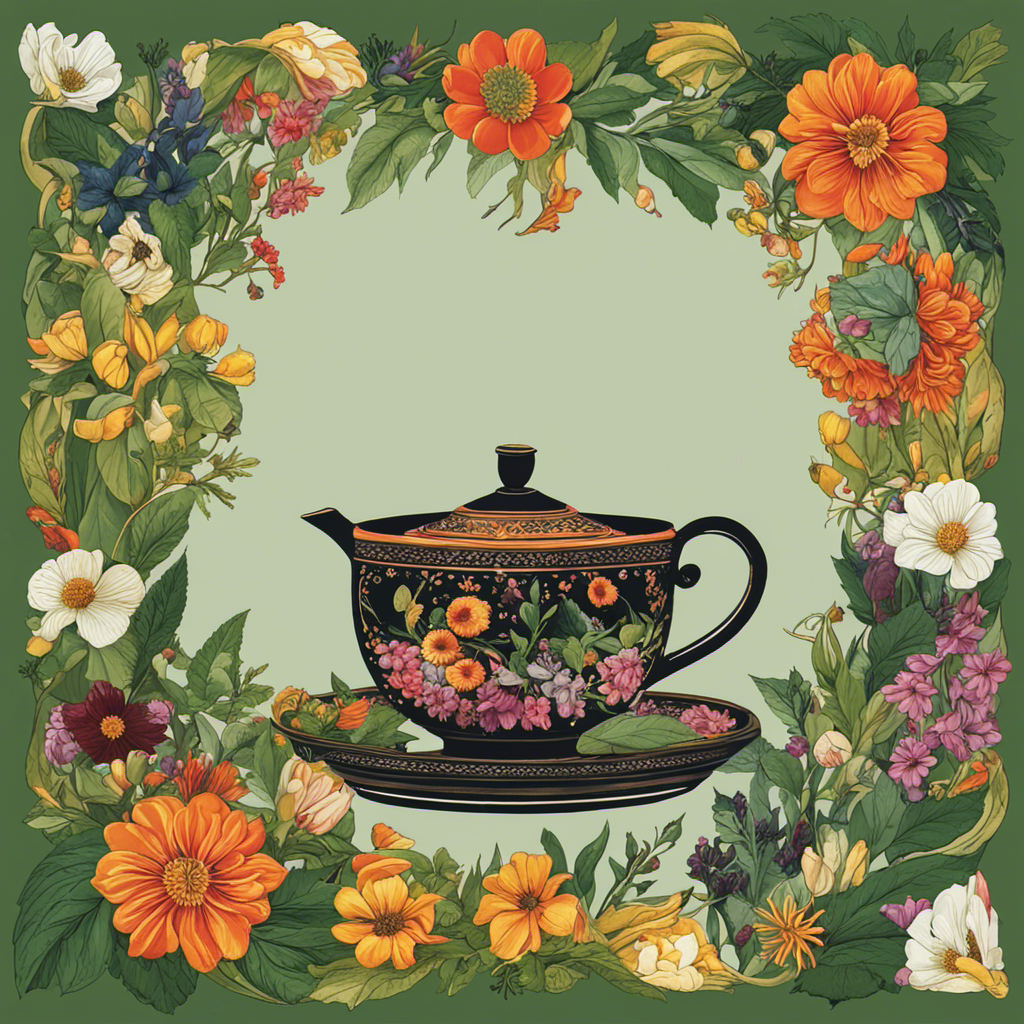
The adage, ‘Not all teas are created equal,’ perfectly encapsulates the world of herbal tea. It might come as a surprise to many that herbal tea doesn’t fall under the category of what’s traditionally recognized as ‘real’ tea. So, what’s the reason behind this? Allow me to explain it to you.
Traditional tea, such as black, green, or oolong, is derived from the leaves of the Camellia sinensis plant. It undergoes a specific process of oxidation and fermentation, which gives it that distinct flavor and caffeine content.
On the other hand, herbal tea is made from various plants, flowers, and herbs, like chamomile or peppermint, which are steeped in hot water. These herbal infusions offer a wide range of flavors and potential health benefits, but they lack the true tea leaves and caffeine found in traditional tea.
So, while herbal tea may not be classified as ‘real’ tea, it certainly has its own unique charm and allure.
Key Takeaways
- Herbal tea is not made from the Camellia sinensis plant.
- Herbal tea lacks true tea leaves and caffeine found in traditional tea.
- Herbal tea is made from various plants, flowers, and herbs.
- Herbal tea offers a wide range of flavors and potential health benefits.
The Difference Between Herbal Tea and Traditional Tea
There exists a discernible distinction between herbal tea and traditional tea. Traditional tea, also known as true tea, is made from the leaves of the Camellia sinensis plant. It includes varieties like green tea, black tea, oolong tea, and white tea.
On the other hand, herbal tea is not made from the Camellia sinensis plant but is instead made from a combination of herbs, flowers, fruits, and spices. This fundamental difference in ingredients leads to variations in taste, aroma, and health benefits.
Traditional tea contains caffeine and antioxidants, while herbal tea is typically caffeine-free and often offers unique therapeutic properties depending on the herbs used.
Both traditional tea and herbal tea have their own merits, but which one is better ultimately depends on individual preferences and health needs. Understanding traditional tea, however, provides a deeper insight into the world of tea beyond herbal alternatives.
Understanding Traditional Tea
When it comes to traditional tea, one must understand the importance of the Camellia sinensis plant. This plant is the foundation of all true teas, including green, black, white, and oolong teas.
Each of these teas is unique in its flavor, aroma, and health benefits, making traditional tea a fascinating and diverse world to explore.
The Camellia sinensis plant
You might be surprised to learn that the Camellia sinensis plant is the secret ingredient that gives real tea its authentic flavor and aroma. Cultivated in various regions around the world, including China, India, and Japan, the camellia sinensis plant is the foundation of traditional tea production.
The leaves of this plant are carefully harvested, processed, and brewed to create the different types of traditional tea that we enjoy. The specific cultivation methods, such as the climate, soil conditions, and altitude, all contribute to the unique characteristics of each tea variety.
From delicate white tea to robust black tea, the camellia sinensis plant is responsible for the vast array of flavors and aromas found in traditional tea. Transitioning into the subsequent section about different types of traditional tea, it’s fascinating to explore the diverse world of tea varieties and their distinct qualities.
Different types of traditional tea
Let’s delve into the fascinating realm of traditional tea and discover the diverse array of flavors and aromas that different types offer. Traditional tea, derived from the leaves of the Camellia sinensis plant, has a rich history and cultural significance that has been passed down through generations. There are several types of traditional tea, each with its own distinct characteristics and brewing techniques. To provide a visual representation of these ideas, I have created a table below:
| Type of Tea | Flavor Profile | Brewing Technique |
|---|---|---|
| Green Tea | Fresh, grassy | Steep at 175°F |
| Black Tea | Bold, robust | Steep at 212°F |
| Oolong Tea | Floral, fruity | Steep at 195°F |
These traditional teas have long been cherished for their unique tastes and aromas, and their brewing techniques vary to bring out the best in each type. Now, let’s explore the variety of herbal tea options and their distinctions in the subsequent section.
The Variety of Herbal Tea Options
When it comes to herbal tea, there’s a wide variety of options to choose from. These teas are made from plants, herbs, fruits, and spices. Each offers unique flavors and health benefits.
Whether it’s a calming chamomile, a refreshing peppermint, or a soothing lavender, there’s an herbal tea for every taste and need.
Plants, herbs, fruits, and spices used
Although herbal tea doesn’t contain tea leaves, it can still be enjoyed as a hot beverage made from various plants, herbs, fruits, and spices. Here are four examples of popular ingredients used in herbal teas:
-
Chamomile: Known for its calming properties, chamomile tea is often consumed before bed to promote a restful sleep.
-
Peppermint: With its refreshing and soothing qualities, peppermint tea is a popular choice for relieving digestive discomfort.
-
Hibiscus: This vibrant flower is used to create a tart and tangy herbal tea that’s rich in antioxidants.
-
Ginger: Known for its spicy and warming flavor, ginger tea is often enjoyed for its potential anti-inflammatory and digestive benefits.
These diverse ingredients not only provide unique flavors but also offer various health benefits.
Transitioning into the next section, let’s explore the incredible range of flavors and the potential health benefits herbal teas have to offer.
Unique flavors and health benefits
After discussing the various plants, herbs, fruits, and spices used in herbal tea, let’s now explore the unique flavors and therapeutic effects that make this beverage so popular.
One of the fascinating aspects of herbal tea is its wide range of flavors. From the refreshing taste of mint to the soothing aroma of chamomile, each herbal infusion offers a distinct and delightful experience for the taste buds. Not only do these flavors provide a pleasant sensory experience, but they also have therapeutic effects on the body.
For example, lavender tea is known for its calming properties, while ginger tea is often used to aid digestion. These health benefits make herbal tea a popular choice for those seeking a natural approach to wellness.
Now, let’s delve into the absence of caffeine in herbal tea and its impact on our bodies.
The Absence of Caffeine in Herbal Tea
When it comes to herbal tea, one key point to consider is the absence of caffeine. As someone who prefers to avoid caffeine, I appreciate having natural alternatives to choose from.
Not only does caffeine-free herbal tea provide a calming and soothing experience, but it also offers various health benefits, making it a great option for those looking for a refreshing and caffeine-free beverage.
Natural alternatives to caffeine
If you’re looking for a natural alternative to caffeine, herbal tea can be a great option for you. Here are some natural energy boosters that can help you reduce your caffeine intake:
-
Matcha Green Tea: This powdered tea is rich in antioxidants and contains a small amount of caffeine. It provides a gentle energy boost without the jitters.
-
Ginseng Tea: Ginseng is known for its ability to improve mental focus and increase energy levels. It can be a great caffeine-free alternative for those looking for a natural pick-me-up.
-
Peppermint Tea: Peppermint has a refreshing and invigorating effect. It can help increase alertness and provide a natural energy boost.
-
Rooibos Tea: This herbal tea is caffeine-free and packed with antioxidants. It can help reduce fatigue and promote overall well-being.
Incorporating these natural alternatives into your routine can be a great way to enjoy the benefits of caffeine-free options.
Benefits of caffeine-free options
By incorporating natural alternatives to caffeine into your routine, you can enjoy the numerous benefits of opting for caffeine-free options. Not only do these alternatives provide a healthier way to stay energized, but they also offer additional wellness benefits. One popular option is herbal tea, which is a flavorful and soothing alternative to traditional tea. Herbal teas are caffeine-free and can be enjoyed throughout the day without the worry of disrupting your sleep or causing jitters. They come in a variety of flavors and blends, each with its own unique health properties. For example, chamomile tea is known for its calming effects, while peppermint tea can aid digestion. By exploring the world of caffeine-free alternatives, you can find a herbal tea that suits your taste and supports your overall well-being. Transitioning into the next section, herbal tea can also be a great relaxation aid.
Herbal Tea as a Relaxation Aid
Herbal tea is a fantastic relaxation aid due to its calming and soothing properties. It can help to calm the mind and body, promoting a sense of tranquility and peace.
Additionally, herbal tea has been found to promote better sleep, allowing for a more restful and rejuvenating night’s rest.
Lastly, herbal tea can provide stress relief, helping to reduce feelings of anxiety and tension. So, if you’re looking for a natural way to relax and unwind, a cup of herbal tea might be just what you need.
Calming and soothing properties
The calming and soothing properties of herbal tea can provide a sense of tranquility and relaxation. Herbal teas are known for their ability to calm the mind and body, promoting a feeling of peace and serenity.
Here are five ways in which herbal tea can help you achieve a deeper sense of calm and relaxation:
- Chamomile tea is renowned for its calming effects, helping to reduce anxiety and promote relaxation.
- Lavender tea has a soothing aroma that can ease stress and help you unwind after a long day.
- Peppermint tea can provide a cooling sensation that relaxes both the body and mind.
- Lemon balm tea has natural sedative properties that can help alleviate restlessness and promote a peaceful sleep.
- Valerian root tea is known for its calming effects on the nervous system, helping to relieve tension and anxiety.
By incorporating these calming teas and soothing herbs into your daily routine, you can promote better sleep and stress relief.
Promoting better sleep and stress relief
Imagine sinking into a soft bed of clouds, your worries melting away as you drift into a deep and restful sleep. Herbal tea has been known to promote better sleep and reduce anxiety, making it a popular choice for those seeking a natural remedy for sleep troubles.
Certain herbs, such as chamomile and valerian root, contain compounds that have a calming effect on the nervous system, helping to induce relaxation and ease tension. These herbs can also help reduce anxiety, allowing the mind to quiet down and prepare for a restful night’s sleep.
Additionally, herbal teas are caffeine-free, which is essential for those sensitive to stimulants that can interfere with sleep. So, if you’re looking for a natural way to improve your sleep quality and reduce stress, herbal tea may be the perfect solution.
Transitioning into exploring the health benefits of herbal tea, let’s delve deeper into its various advantages.
Exploring the Health Benefits of Herbal Tea
When it comes to herbal tea, there are two key points to consider: its antioxidant properties and the targeted health benefits of different herbs.
Herbal teas are known for their high levels of antioxidants, which help protect the body from free radicals and reduce the risk of chronic diseases.
Additionally, different herbs used in herbal teas offer specific health benefits. For example, chamomile is known for its relaxation properties, peppermint aids in digestion, and ginger boosts immunity.
So, not only do herbal teas provide a delightful beverage option, but they also offer a range of health benefits depending on the herbs used.
Antioxidant properties
Contrary to popular belief, herbal tea lacks the same antioxidant properties as real tea. While real tea, such as green tea, is packed with antioxidant-rich ingredients like catechins and polyphenols, herbal tea is made from a variety of herbs, fruits, and flowers that don’t contain the same levels of antioxidants. To better illustrate this point, let’s compare the antioxidant content of green tea and some common herbal teas in the table below:
| Tea Type | Antioxidant Content |
|---|---|
| Green tea | High |
| Chamomile tea | Low |
| Peppermint tea | Moderate |
As you can see, green tea has a high antioxidant content, while herbal teas like chamomile and peppermint have lower levels. This distinction is important because antioxidants play a crucial role in protecting our cells from damage caused by free radicals. Moving forward, we will explore the targeted health benefits of different herbs, highlighting their unique properties.
Targeted health benefits of different herbs
Discover the diverse and distinct health benefits of different herbs, harnessing their healing powers and promoting overall well-being. Each herb possesses targeted health benefits that can address specific health concerns.
For example, chamomile is known for its calming properties and can help alleviate anxiety and promote better sleep. Peppermint is commonly used to soothe digestive issues such as bloating and indigestion. Ginger is well-regarded for its anti-inflammatory properties and can aid in reducing muscle pain and improving digestion. Echinacea is often used to boost the immune system and fight off colds and flu.
These targeted health benefits make herbal remedies a popular choice for those seeking natural alternatives to traditional medicine. Transitioning into the subsequent section, let’s explore the benefits of herbal tea for digestive health.
Herbal Tea for Digestive Health
To improve your digestive health, herbal tea can be a beneficial choice as it doesn’t contain caffeine and can have soothing properties. Certain herbs used in herbal teas, like peppermint, ginger, and chamomile, have traditionally been used to aid digestion and relieve digestive discomfort.
Peppermint tea, for example, is known for its ability to relax the muscles of the gastrointestinal tract and reduce symptoms like bloating and indigestion. Ginger tea can help stimulate digestion and alleviate nausea. Chamomile tea has anti-inflammatory properties that can soothe an irritated digestive system.
In addition to these targeted benefits, herbal teas can also contribute to overall wellness. They can be a part of a healthy lifestyle, along with a balanced diet and regular exercise, to support digestive health and promote overall well-being.
Incorporating Herbal Tea into a Healthy Lifestyle
Incorporating herbal tea into a healthy lifestyle can be a refreshing and comforting way to support digestive health and promote overall well-being. Not only does herbal tea provide hydration, but it can also aid in weight loss by curbing appetite and boosting metabolism.
Many herbal teas, such as green tea and oolong tea, contain compounds that’ve been shown to increase fat burning and improve insulin sensitivity. Additionally, certain herbal teas, like chamomile and peppermint, have been used for centuries to soothe digestive issues such as bloating and indigestion.
Furthermore, herbal teas are rich in antioxidants, which can help boost the immune system and protect against harmful free radicals. By incorporating herbal tea into a weight loss plan and utilizing its immune-boosting properties, individuals can enhance their overall health and well-being.
Frequently Asked Questions
Can herbal tea be considered a true tea?
Herbal tea cannot be considered a true tea because it is not made from the Camellia sinensis plant. However, it does have health benefits and cultural significance due to its use in traditional medicine and various cultural practices.
How is traditional tea different from herbal tea?
Traditional tea and herbal tea differ in their brewing process and health benefits. Traditional tea is made from the Camellia sinensis plant, while herbal tea is made from herbs, fruits, and flowers.
What are the various options available in terms of herbal tea flavors?
There are numerous options when it comes to herbal tea flavors. Some examples include chamomile, peppermint, ginger, and hibiscus. Each type offers its own unique taste and potential health benefits.
Does herbal tea contain caffeine?
Yes, herbal tea can contain caffeine. However, it varies depending on the herbs used. Herbal tea has health benefits like improving digestion and reducing stress. Potential side effects include allergies or interactions with certain medications.
Can herbal tea help with weight loss?
Herbal tea can potentially aid in weight loss due to its natural ingredients and low-calorie content. It offers numerous benefits, such as boosting metabolism and reducing inflammation. Try incorporating herbal tea into your routine with these delicious herbal tea recipes.
Conclusion
In conclusion, herbal tea may not be considered ‘real tea’ in the traditional sense, but it offers a world of flavors and health benefits that shouldn’t be overlooked. So, next time you’re looking for a soothing and caffeine-free beverage, why not give herbal tea a try? It’s like adding a splash of color to your daily routine, transporting you to a tranquil garden oasis where time slows down and worries melt away. Embrace the herbal tea revolution and elevate your tea-drinking experience to new heights. Cheers to a healthier and more relaxed you!
Noah, the Editor-in-Chief at Cappuccino Oracle, plays a pivotal role in shaping the voice and vision of our renowned platform. With an unwavering passion for coffee, coffee alternatives, and tea, Noah leads Cappuccino Oracle towards new horizons in the realm of coffee journalism.
Beyond his professional responsibilities, Noah serves as a mentor and guiding force for his team. His dedication to journalistic excellence and genuine love for coffee, coffee alternatives, and tea continue to inspire and motivate the Cappuccino Oracle family. In the ever-evolving world of these beverages, Noah’s leadership ensures that our platform remains at the forefront, delivering enlightening and enjoyable content to our readers worldwide.
Herbal Tea
Why Drinking Herbal Tea Is Better Than Coffee
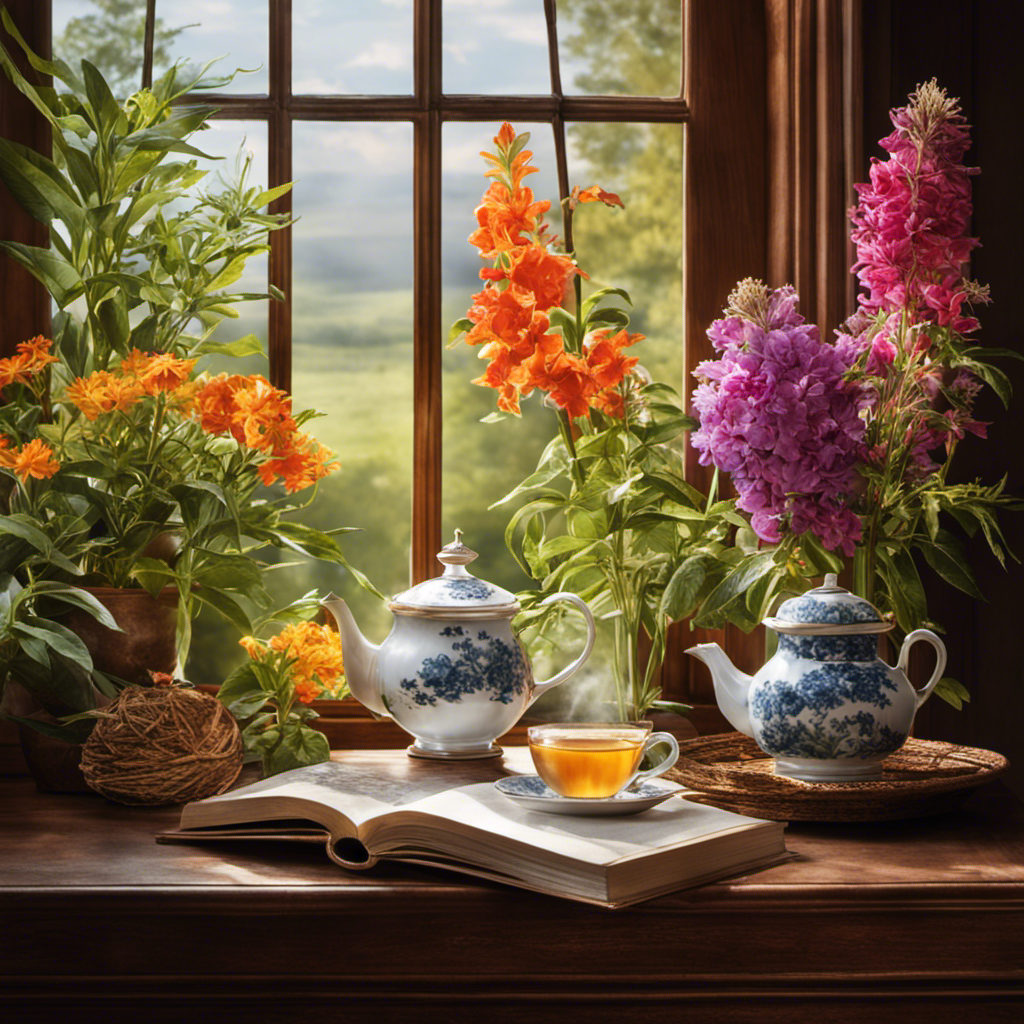
Sitting here with a steaming herbal tea in hand, I find myself utterly captivated by its soothing scent and how it gently warms my spirit.
There’s something truly magical about herbal tea – a natural elixir that offers a multitude of health benefits. From providing a natural source of energy to its vast variety of flavors and ingredients, herbal tea is a true powerhouse.
It’s a caffeine-free option that not only hydrates but also calms and relieves stress. As I delve deeper into the world of herbal tea, I discover its antioxidant properties, making it a true champion for my overall well-being.
And the best part? It’s a sustainable and environmentally friendly choice.
So, join me on this journey as we explore why drinking herbal tea is not just a healthier option but a delightful one that nourishes both body and soul.
Key Takeaways
- Herbal tea offers a flavorful alternative to plain water, while coffee can be more bitter and strong in taste.
- Herbal tea contains antioxidants that protect against free radicals, while coffee does not have the same level of antioxidant content.
- Herbal tea has calming and stress-relieving effects, promoting mental clarity and reducing anxiety, whereas coffee can sometimes increase anxiety levels.
- Drinking herbal tea supports sustainable farming practices and reduces the need for harmful pesticides and synthetic fertilizers, making it a more environmentally friendly choice compared to coffee.
Health Benefits of Herbal Tea
You’ll love how herbal tea can boost your overall health and well-being! Herbal tea is a wonderful natural remedy that offers a wide range of health benefits.
One of the key advantages of herbal tea is its ability to support the immune system. Certain herbs like echinacea and elderberry are known for their immune-boosting properties, helping to ward off colds and flu.
Additionally, herbal teas are rich in antioxidants, which help to combat free radicals and reduce inflammation in the body. They can also aid in digestion, relieve stress, and promote relaxation.
Unlike coffee, herbal tea is caffeine-free, making it a great choice for those who are sensitive to caffeine or looking to reduce their intake.
So why not swap your cup of coffee for a delicious and healthful cup of herbal tea? Your body will thank you!
Natural Source of Energy
With its invigorating properties, herbal tea provides a natural boost of energy, setting the stage for a productive day ahead. As a caffeine alternative, herbal tea offers a natural source of energy that can help us stay alert and focused without the jitters or crashes that come with coffee.
Unlike coffee, which contains high levels of caffeine that can lead to dependency and withdrawal symptoms, herbal tea harnesses the power of natural ingredients to provide sustained energy throughout the day. Ingredients like ginseng, ginger, and peppermint are known for their energizing properties and can help improve mental clarity and concentration.
Additionally, herbal tea is rich in antioxidants, which support overall health and vitality. So, why rely on coffee when you can experience a natural energy boost with herbal tea?
Variety of Flavors and Ingredients
Explore a world of tantalizing flavors and irresistible ingredients that will leave your taste buds craving more. Herbal tea offers a wide variety of flavorful blends that can satisfy any palate. From soothing chamomile to invigorating peppermint, there is a herbal tea for every mood and occasion. These teas are created by combining different herbs and botanicals, resulting in a unique and refreshing taste experience. Moreover, herbal teas are often made with natural ingredients that have been used for centuries as herbal remedies. This means that not only are you enjoying a delicious beverage, but you are also benefiting from the healing properties of these herbs. So why settle for a plain cup of coffee when you can explore the world of herbal tea and indulge in its flavorful blends and herbal remedies?
| Flavors | Ingredients | Benefits |
|---|---|---|
| Chamomile | Chamomile flowers | Calming and aids in sleep |
| Peppermint | Peppermint leaves | Refreshing and aids in digestion |
| Lavender | Lavender buds | Relaxing and helps reduce stress |
Antioxidant Powerhouse
When it comes to the antioxidant powerhouse of herbal tea, I can personally attest to its ability to fight free radicals and promote overall well-being.
The high concentration of antioxidants in herbal tea helps to neutralize harmful free radicals in the body, reducing the risk of chronic diseases.
Additionally, the diverse range of herbs and plants used in herbal tea provide a holistic approach to improving overall health, offering a natural and nourishing solution for optimal well-being.
Fights Free Radicals
Drinking herbal tea is a great way to combat free radicals and protect your body. Not only does herbal tea taste delicious, but it also contains powerful antioxidants that can help fight inflammation and boost your immune system. One of the main benefits of herbal tea is its ability to fight free radicals. Free radicals are unstable molecules that can damage cells and contribute to various diseases. By consuming herbal tea regularly, you can provide your body with a rich source of antioxidants that help neutralize these harmful molecules. To give you a better understanding of the antioxidant power of herbal tea, here is a comparison table showcasing the antioxidant content of popular herbal teas:
| Herbal Tea | Antioxidant Content | Benefits |
|---|---|---|
| Green Tea | High | Fights inflammation, supports heart health |
| Chamomile Tea | Moderate | Promotes relaxation, aids sleep |
| Rooibos Tea | Low | Soothes digestion, supports healthy skin |
By incorporating herbal tea into your daily routine, you can enjoy its many benefits and give your body the protection it needs against free radicals.
Promotes Overall Well-being
Incorporating herbal tea into your daily routine can leave you feeling rejuvenated and ready to take on the day. Not only does herbal tea offer a delicious and comforting alternative to coffee, but it also promotes overall well-being.
Herbal teas, such as chamomile and peppermint, have been used for centuries to support digestion and promote a healthy gut. These teas contain natural compounds that can soothe an upset stomach, relieve bloating, and even alleviate symptoms of irritable bowel syndrome. By promoting digestion, herbal tea can help you maintain a healthy and happy digestive system.
Additionally, herbal tea is rich in antioxidants, which can help boost your immune system. Antioxidants are known for their ability to fight free radicals in the body, reducing the risk of chronic diseases and boosting overall health. By incorporating herbal tea into your daily routine, you can give your immune system the support it needs to keep you feeling your best.
In summary, drinking herbal tea promotes digestion and boosts the immune system, making it a great choice for those looking to improve their overall well-being. So why not swap out your morning cup of coffee for a soothing cup of herbal tea? Your body will thank you.
Hydration Benefits
Sipping herbal tea is a delightful way to keep your body hydrated and nourished. Not only does herbal tea provide hydration benefits, but it can also aid in weight loss.
Unlike coffee, which can be dehydrating, herbal teas are made from plants and contain natural compounds that promote hydration. These teas are typically caffeine-free, allowing you to stay hydrated without any negative effects.
Additionally, certain herbal teas, such as green tea and oolong tea, have been found to boost metabolism and promote weight loss. These teas contain antioxidants called catechins, which can help increase fat burning and improve overall body composition.
So, if you’re looking for a refreshing and healthy way to stay hydrated and support your weight loss goals, herbal tea is the perfect choice.
Caffeine-Free Option
Indulge in the delightful embrace of a caffeine-free herbal elixir, soothing your senses and giving your body the nourishment it craves. When it comes to beverage options, caffeine alternatives can provide a soothing and calming experience.
Here are four reasons why choosing a caffeine-free herbal tea over coffee can be a wise choice:
-
Relaxation: Herbal teas like chamomile, lavender, and peppermint are known for their calming properties, helping to reduce stress and promote relaxation.
-
Improved Sleep: Unlike coffee, herbal teas don’t contain caffeine, making them a great choice for those looking to improve their sleep quality and quantity.
-
Hydration: Herbal teas are a great way to stay hydrated throughout the day, as they provide a flavorful alternative to plain water.
-
Antioxidant Boost: Many herbal teas contain antioxidants, which can help protect your body against free radicals and promote overall health.
Incorporating caffeine-free herbal teas into your daily routine can provide a soothing and nourishing experience, offering an array of benefits for both your mind and body.
Calming and Stress-Relieving Effects
When it comes to relaxing and unwinding, herbal tea is my go-to beverage. The calming and stress-relieving effects of herbal tea are well-known and have been supported by research. It helps reduce anxiety and promotes mental clarity, allowing me to feel more at ease and focused throughout the day.
Relax and Unwind with Herbal Tea
Kick back and let herbal tea help you unwind and relax. Herbal tea is a great way to create a calming routine and find moments of tranquility in our busy lives. When it comes to relaxation techniques and mindfulness practices, herbal tea can be a valuable tool.
Here are a few reasons why herbal tea is the perfect companion for relaxation:
-
Variety: There are countless flavors and blends of herbal tea to choose from, allowing you to find the perfect taste that helps you unwind.
-
Aromatherapy: The soothing aroma of herbal tea can have a positive impact on our mood and help us relax.
-
Ritual: Preparing a cup of herbal tea can become a mindful ritual, allowing us to slow down, focus on the present moment, and let go of stress.
So next time you need to relax and unwind, reach for a cup of herbal tea and let its calming effects wash over you.
Reduce Anxiety and Promote Mental Clarity
Immerse yourself in a soothing oasis of calmness and clarity with the gentle embrace of nature’s elixir. Herbal tea, a natural remedy, has been shown to reduce anxiety and promote mental clarity.
Unlike coffee, which can sometimes leave you feeling jittery and on edge, herbal tea contains compounds that have a calming effect on the mind and body. Research has found that certain herbs, such as chamomile and lavender, have anxiety-reducing properties, helping to relax the nervous system and alleviate stress.
Additionally, herbal tea can improve focus and mental clarity. The antioxidants found in herbal tea, such as catechins and flavonoids, have been linked to enhanced cognitive function and improved attention span.
So, if you’re looking for a beverage that can help you unwind and stay focused, herbal tea is the perfect choice.
Sustainable and Environmentally Friendly
Choosing herbal tea over coffee isn’t just a healthier choice, but also a more sustainable and environmentally friendly one.
When it comes to sustainable farming, herbal teas are often cultivated using organic and natural methods. Farmers use techniques like composting and crop rotation, which help maintain soil fertility and reduce the need for harmful pesticides and synthetic fertilizers.
Additionally, herbal teas are often packaged in eco-friendly materials such as biodegradable tea bags or loose leaf options that minimize waste.
By opting for herbal tea, you’re not only benefiting your own health but also supporting sustainable farming practices and reducing your environmental footprint.
So next time you reach for a beverage, consider the sustainable and eco-friendly option of herbal tea.
Frequently Asked Questions
What are some common herbal tea flavors and ingredients?
There are a variety of herbal tea flavors and ingredients, each with unique health benefits. Some popular types include chamomile for relaxation, peppermint for digestion, and ginger for immunity. Choose the one that suits your needs best.
How does herbal tea compare to coffee in terms of hydration benefits?
Herbal tea is equally hydrating as coffee, but with added benefits. While coffee can lead to dehydration due to its diuretic properties, herbal teas like chamomile and hibiscus can help maintain hydration levels and provide antioxidants for overall well-being.
Can herbal tea provide a sustainable and environmentally friendly alternative to coffee?
Herbal tea can provide a sustainable and environmentally friendly alternative to coffee. Its production requires less water, land, and energy compared to coffee, reducing the overall environmental impact.
Are there any potential side effects or risks associated with drinking herbal tea?
Potential health risks associated with drinking herbal tea include allergic reactions, interactions with medications, and contamination. Long-term effects are uncertain due to limited research, but moderation and consulting a healthcare provider can help minimize any potential risks.
How does herbal tea help in calming and relieving stress?
Herbal tea helps calm and relieve stress by promoting relaxation and reducing anxiety. It has been shown to improve sleep quality and enhance mental well-being, offering holistic benefits for relaxation and stress relief.
Conclusion
In conclusion, after exploring the numerous health benefits of herbal tea, it’s clear that choosing this beverage over coffee is a wise decision. Just like a gentle breeze in a serene meadow, herbal tea provides a natural source of energy without the jitters and crashes associated with coffee. Its variety of flavors and ingredients symbolize the diverse and holistic approach to wellness.
With its antioxidant power and hydration benefits, herbal tea truly nourishes both the body and the soul. So, why not sip on a cup of herbal tea and embrace a healthier, more sustainable lifestyle?
Noah, the Editor-in-Chief at Cappuccino Oracle, plays a pivotal role in shaping the voice and vision of our renowned platform. With an unwavering passion for coffee, coffee alternatives, and tea, Noah leads Cappuccino Oracle towards new horizons in the realm of coffee journalism.
Beyond his professional responsibilities, Noah serves as a mentor and guiding force for his team. His dedication to journalistic excellence and genuine love for coffee, coffee alternatives, and tea continue to inspire and motivate the Cappuccino Oracle family. In the ever-evolving world of these beverages, Noah’s leadership ensures that our platform remains at the forefront, delivering enlightening and enjoyable content to our readers worldwide.
-

 Espresso Machines Reviews3 weeks ago
Espresso Machines Reviews3 weeks agoDeLonghi Eletta Explore: A Comprehensive Review [2025]
-

 Espresso Machines Reviews4 weeks ago
Espresso Machines Reviews4 weeks agoILAVIE 20 Bar Espresso Machine Review (2025)
-

 Espresso Machines Reviews4 weeks ago
Espresso Machines Reviews4 weeks agoSUMSATY Espresso Machine Review (2025)
-
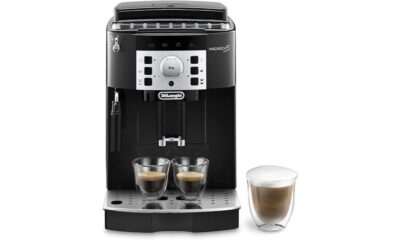
 Espresso Machines Reviews3 weeks ago
Espresso Machines Reviews3 weeks agoDeLonghi Magnifica S ECAM22.110.B Review: A Coffee Lover's Dream [2025]
-
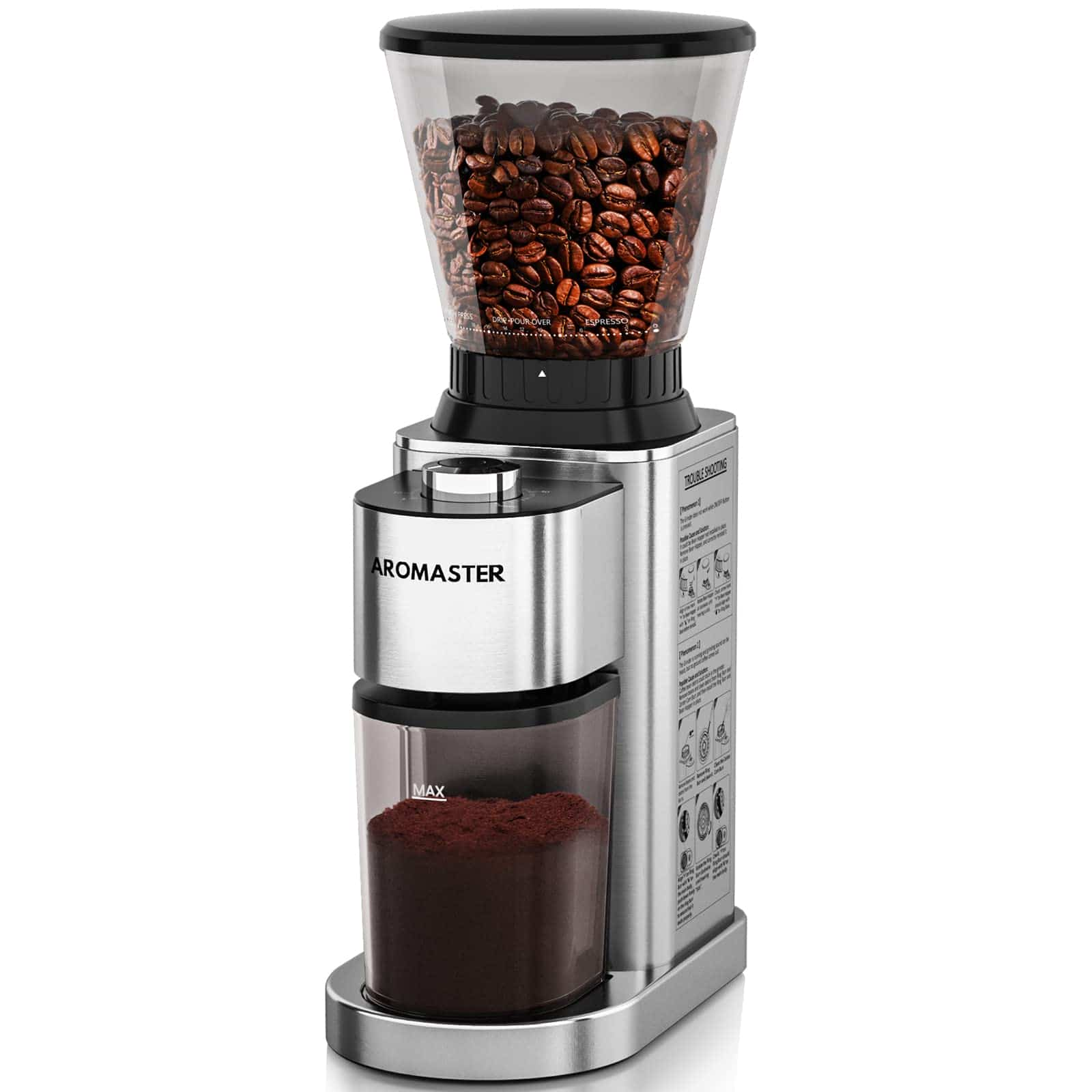
 Coffee Grinders Reviews4 weeks ago
Coffee Grinders Reviews4 weeks agoAromaster Burr Coffee Grinder Review (2025)
-

 Espresso Machines Reviews4 weeks ago
Espresso Machines Reviews4 weeks agoMAttinata Espresso Machine Review (2025)
-

 Espresso Machines Reviews4 weeks ago
Espresso Machines Reviews4 weeks agoCafe Bueno Super Automatic Espresso Machine Review (2025)
-
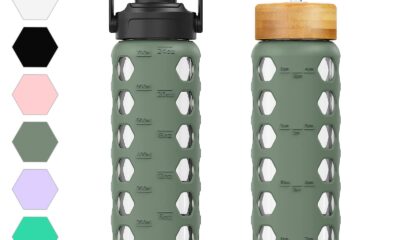
 Cappuccino Oracle Selected Reviews3 weeks ago
Cappuccino Oracle Selected Reviews3 weeks agoBest Glass Water Bottles for Eco-Friendly Hydration [2025]





